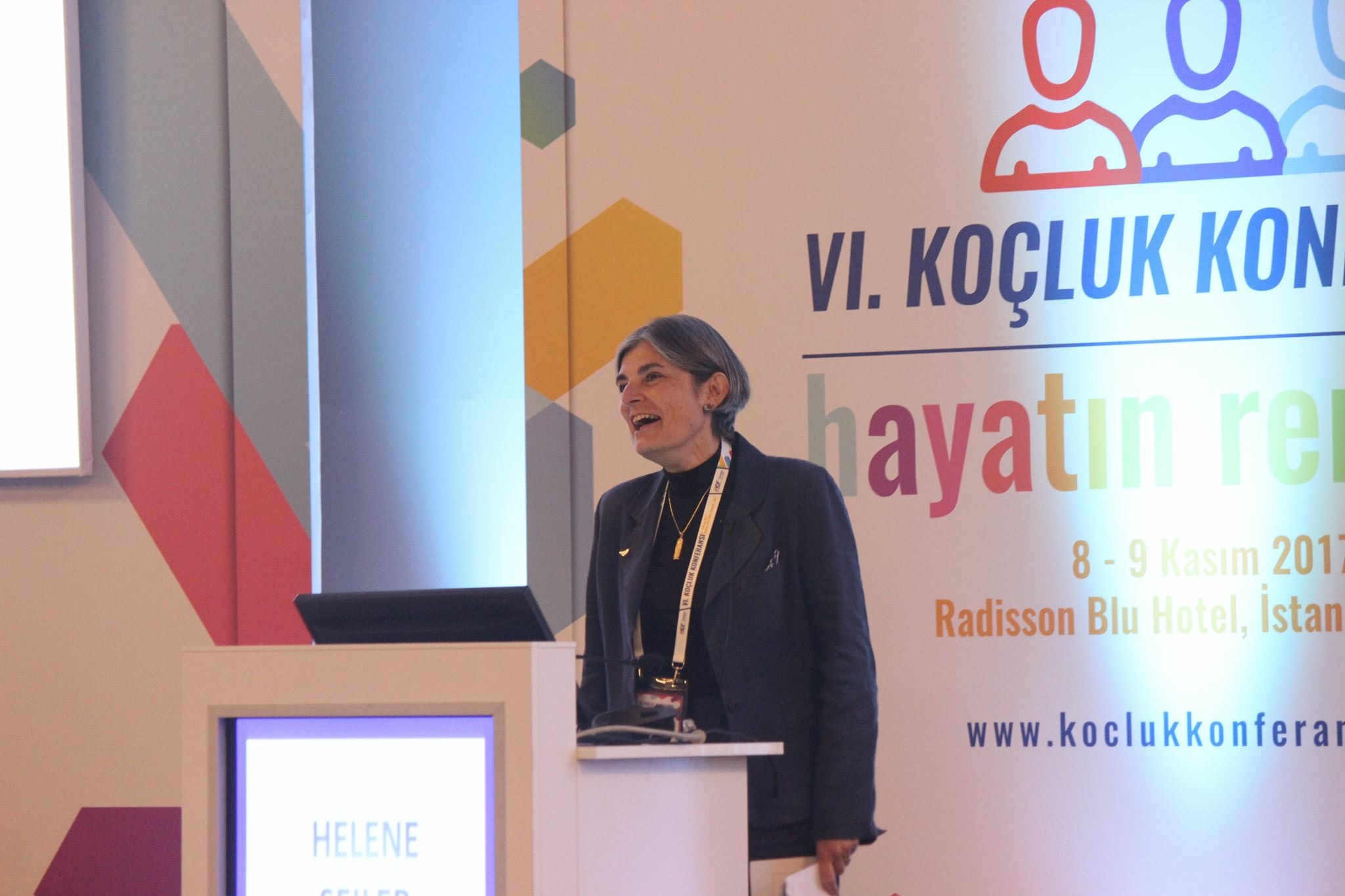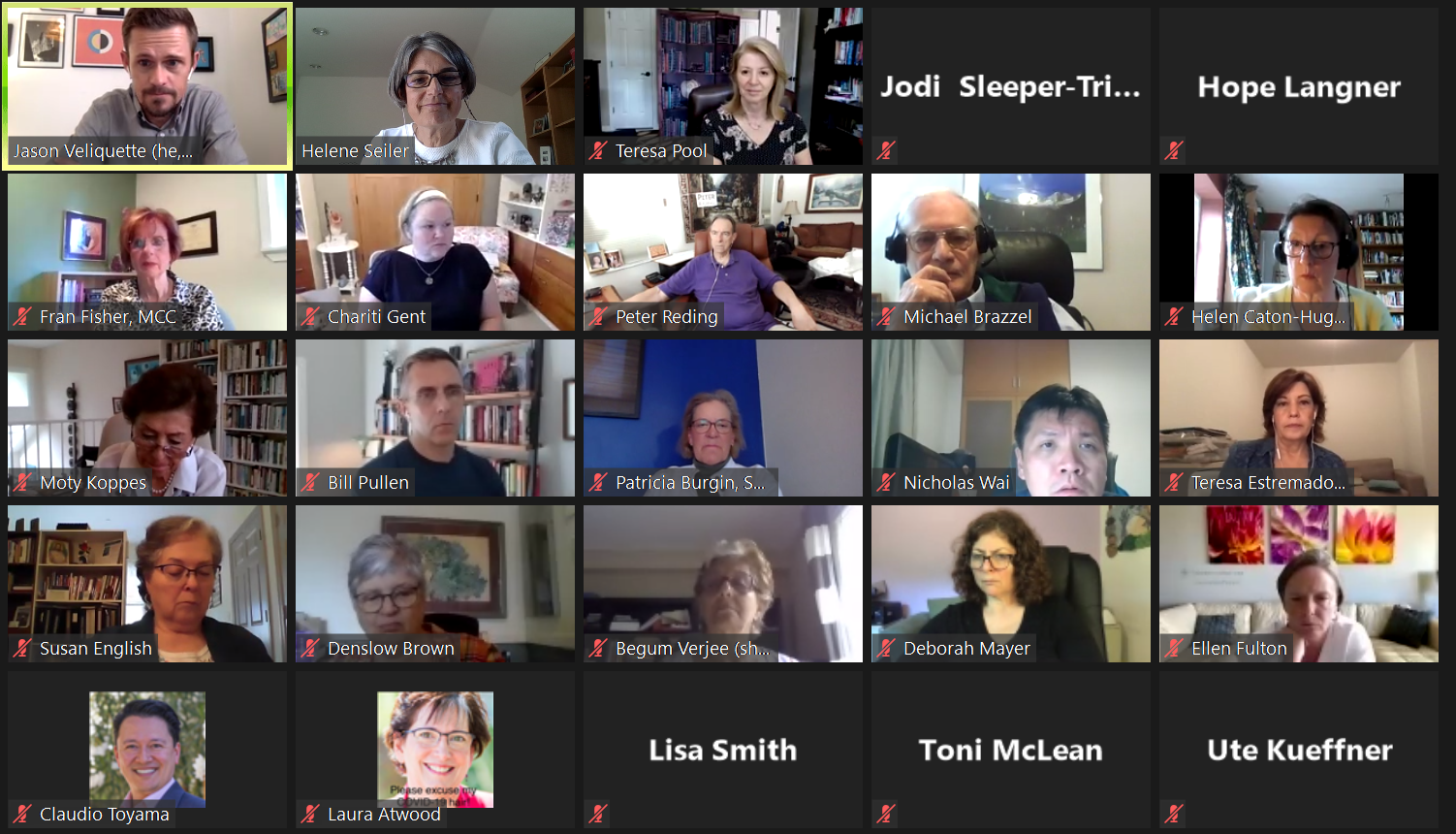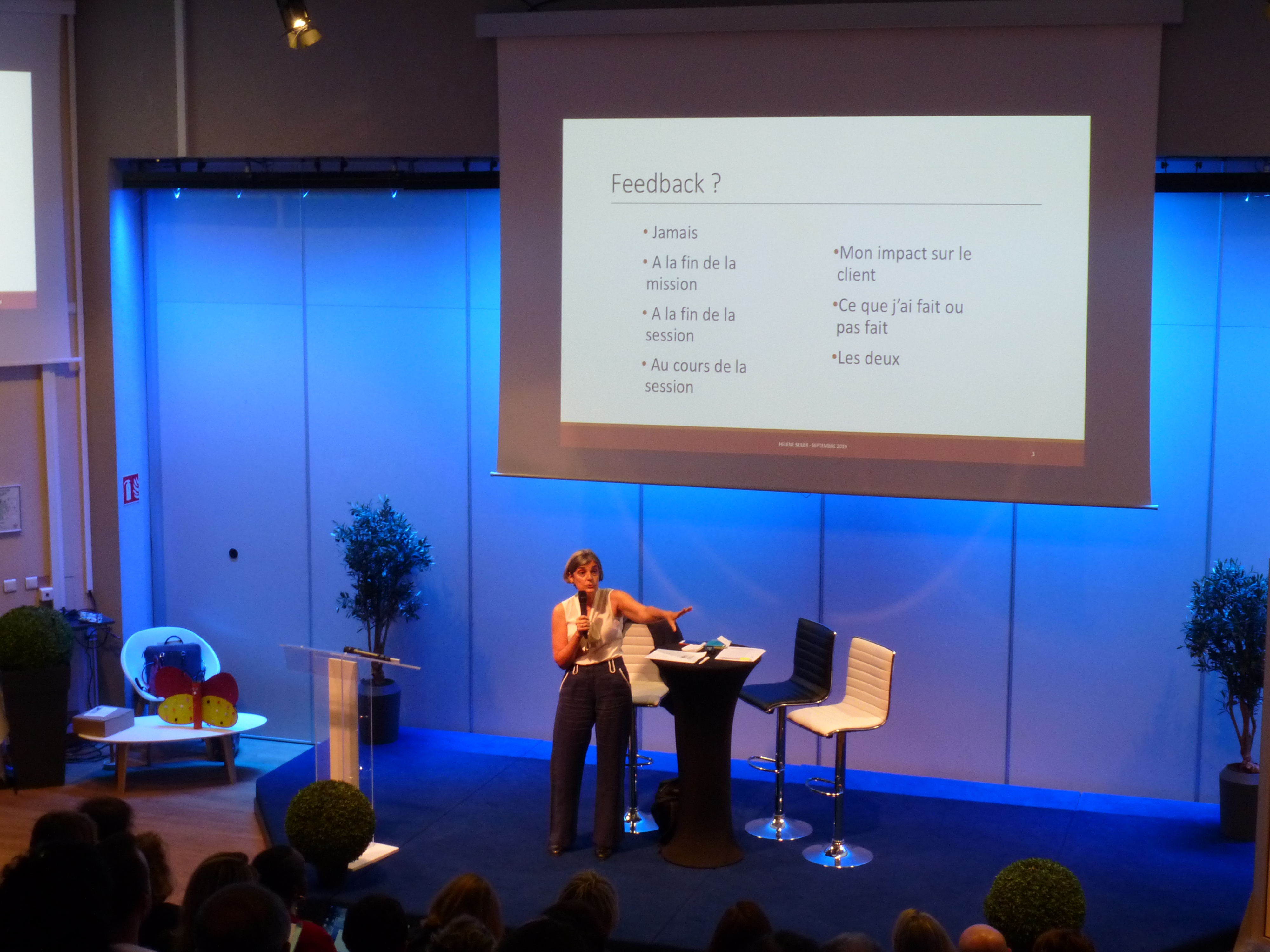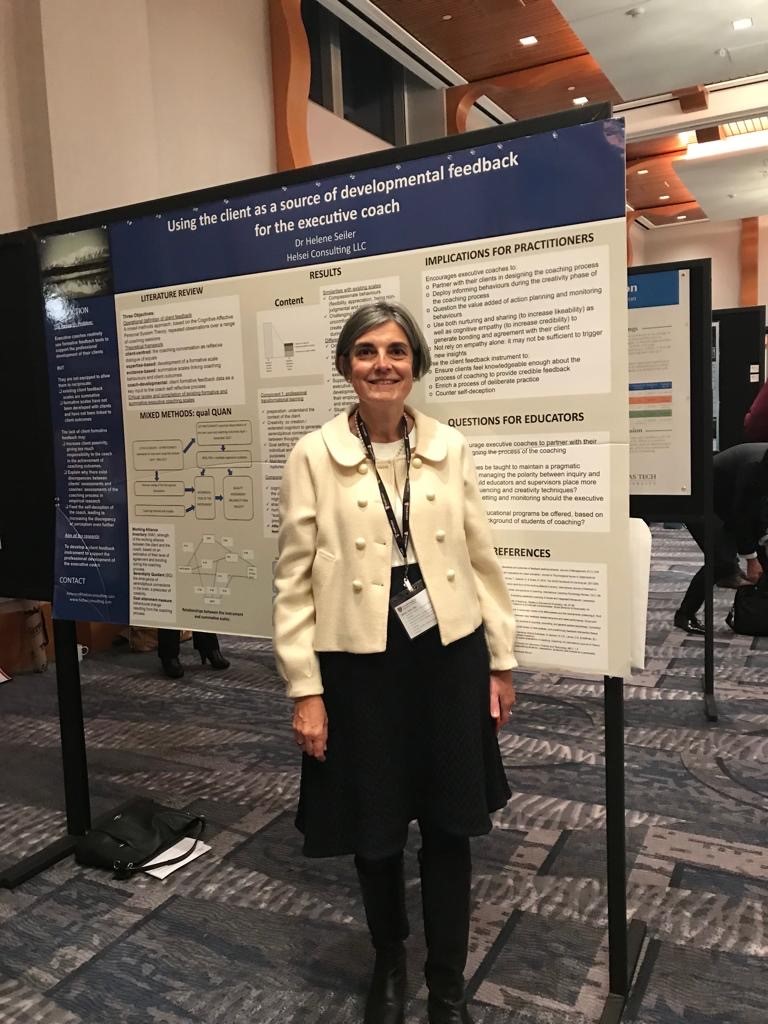SERVICES
The idea of using coaching for professional development sprang from the success of coaching in the world of sports. Executive coaches work with leaders who want to perform even more effectively. Coaches help manage work transitions, develop the career, and increase organizational influence and supervisory skills. Executive coaching is in an individual learning process, conceived as a joint endeavor between the coach and the client, in service of the professional development of the client. It provides the opportunity for the client to stand back and reflect on work situations and behaviors so as to understand them better and get new insights on increasing their impact on their teams and organization.
An executive coaching process can serve several purposes:
- Identity coaching to support an executive whose professional or personal circumstances have changed
- Cognitive behavioral coaching, grounded in a rigorous assessment of the leader’s style and strengths including the use of psychometric, 360 and shadowing, to build and develop leadership capacity
- Management coaching to accelerate the development of specific competencies for high-potentials
- Sustainability and networking coaching to reflect on leading complex adaptive systems across multiple geographies
The following process below is indicative
Typical executive coaching process:
- Psychometric tests – month 1
Coach reviews pre-existing psychometric tests, 360s, annual evaluations and other written
assessments provided by client.
Client takes additional assessments as needed.
2) Stakeholders’ interviews – month 1
Coach conducts 20-minute one-on-one interviews with a panel of stakeholders to measure
client’s perceived strengths, development themes and impact. The list of interviewees is created jointly by coach, supervisor and HR support.
- Awareness report – months 2
Coach produces a report describing client’s key leadership strengths and developmental areas as perceived by others. It highlights gaps between client’s strengths, intentions and impact. It is the foundation of the feedback session described below and is for client’s eyes only.
- Feedback and development meeting - Client / Coach – month 2
This session, based on the awareness report, allows client to articulate his key learnings and
insights on ways he can better leverage his leadership strengths and address perception gaps. It leads to the first draft of a leadership development plan and will be refined in the subsequent days.
- Alignment sessions with the key stakeholders – Client / coach / supervisor and HR support – month 2/3
The purpose of this meeting is to get everyone aligned on the content of the leadership development plan. We review progress accomplished so far, what and how long it will take to achieve the leadership goals presented in the plan. We agree on next steps accordingly.
- On-going coaching: Coach / Client monthly – month 2/3 onwards
The coaching sessions consist in debriefing progress of the leadership development plan and
reflecting on learnings and ways forward.
- Pulse-check phone interviews – month 6/7
At the end of the coaching program, these focused 20-minute one-on-one phone interviews involve 6 to 8 major stakeholders to measure the effectiveness of the coaching.
Career coaching, also called transition coaching, is focused on equipping clients with resources to change their current professional circumstances, either within their current organisation or outside of it.
The following process below is indicative
Typical career coaching process
Phase 1
| Introduction | Chemistry Session | Asset fit and understand the context, scope and deadline of the Intervention
| Client / Hélène |
| Step 1 | Biographical Interview | Highlight skillset and key strengths
| Client / Hélène |
| Step 2 | Assessment | Complete psychometric assessment and impact feedback
| Client – psychometrics provided by Helsei Consulting |
| Step 3 | Feedback | Integrate data to get a complete picture of Client’s profile
| Client / Hélène |
| Step 4 | Visioning | Complete visioning survey | Client - survey provided by Helsei Consulting
|
| Step 5 | Career plan | Review career options and define positioning
| Client / Hélène |
| Step 6 | Targeting | Complete targeting survey (Search firms, target organizations)
| Client – survey provided by Helsei Consulting |
| Step 7 | Search plan | Review and prioritize target organizations
| Client / Hélène |
| Step 8 | Network analysis | Map current and target network, cluster the network
| Client |
| Step 9 | Communication strategies and flow | CV, bio, online profile, pitch, market visibility initiatives, prioritization of targets, managing the search process | Client / Hélène |
Phase 2
| Step 10 | Transitioning from full time office work to full time search | 1) Implement time / task management system 2) Inform and transition network (colleagues, clients, partners, suppliers) 3) retrieve and organize transferable knowledge and information
| Client |
| Step 10 | Pipeline management | Categorize prospective employers Manage the pipeline to mitigate risks
| Client / Hélène |
| Step 11 | Interview management | Conduct due diligence Manage interview process Rank offers and emerging offers Manage the time-line of interviews and offers
| Client / Hélène |
| Step 12 | Negotiation | Prepare and execute contract negotiation
| Client / Hélène |
| Step 13 | Pre-boarding | Organize transition Reflect on the indicators of success and sustainability at new employer | Client / Hélène |

Supervision happens when a coach (supervisor) gives a space to another coach to discuss actual client coaching situations in a confidential manner so that the supervise can move to a higher level of practice. I offer it as a one-on-one format.
Supervision is a joint endeavor, in service of the supervise. It provides the opportunity for the supervise to stand back and reflect on the coaching they are providing to their clients so as to understand them better and what might best help them. At the heart of the exploration sits the coach-client relationship. There are cognitive behavioral foundations to supervision and as a result I encourage my supervises to share tapes or transcripts of coaching session so that we can discuss behaviors and their impact. We also reflect on the psychological closeness between the coach and the client and their positive and more problematic consequences. Finally, we consider the wider context in which both the client and the coach work together and how it impacts the delivery and results of the intervention.
Coaching as a managerial skill
I offer modular workshops to teach managerial coaching behaviors from the mid-manager to the senior executive team level.
The coaching behaviors that I focus on are derived from the 3-year research project that I conducted in 2015-2018 to explore what coaching behaviors are considered effective by the recipients of coaching, including:
- Empathy
- Feedback
- Influence
- Creativity
Each topic is covered in a half-day and can be taught independently of each other in a one-day workshop. The following schedule is indicative. Covering all four topics will take 2 ½ days.
Setting the stage
08:30am Welcome – why a training on coaching skills
09:00am Foundations of coaching
10:00am Break
10:15am Outcomes of coaching
12:00pm Lunch
Interactive Discussion
1:00pm Brainstorming about (empathy / feedback / influence / creativity)
2:00pm Preparation for the video simulation – rules of engagement
Experimenting
2:15pm Video Simulation Round 1
3:00pm Break
3:15pm Video Simulation Round 2
Practicing
4:00pm Evaluation and next steps
4:30pm End
I offer one-day workshops to teach mentoring skills at the senior-manager level. The following agenda is indicative:
Setting the stage
08:30 am Welcome – why a training on mentoring
09:00 am The four cornerstones of mentoring
10:00 am Break
10:15 am Best practices in the mentoring process
12:00 pm Lunch -Interactive Discussion
1:00 pm Brainstorming in two groups
2:00 pm Preparation for the video simulation – rules of engagement experimenting
2:15 pm Video Simulation Round 1
3:00 pm Break
3:15 pm Video Simulation Round 2 Practicing
4:00 pm Evaluation and next steps
4:30 pm End
This one-day workshop includes a group of 16 managers to senior-executive level teams in your organisation and composed of 12 women and 4 men. It starts with the examination of one set of statistics examining the influence of women in the organization (for example, gender balance at different levels in the organization). It is designed to generate inquiries about the causes and consequences of gender unbalance and to generate creative solutions.
8:30 to 9:30 AM GETTING READY
9:30 to 10:30 AM CO-CREATING POWERFUL INQUIRIES
10:30 to 10:45 AM TEA BREAK
10:45 to 11:30 AM CO-CREATING POWERFUL INQUIRIES
11:30 AM to 12 PM KICKING OFF THE SOLUTION FOCUSED APPROACH
12:00 PM to 1:00 PM LUNCH BREAK
1:00 PM to 3:00 PM SOLUTIONS AND INQUIRIES
3:00 PM to 3:15 PM TEA BREAK
3:15 PM to 4:00 PM TOWARDS RENEWAL
4:00 PM to 4:30 PM CLOSING CIRCLE
Formative feedback is likely to improve performance, which has encouraged executive coaches to seek accreditation and supervision. However, many coaches do not consider their clients as suitable providers of formative feedback, due, in part, to a lack of shared knowledge about effective behaviors. The study I conducted between 2015 and 2018 addressed the issue by developing a client behavioral feedback instrument for the executive coach. Click on the video below to learn more about some of the key findings of the research.






